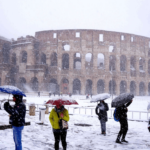Before embarking on any trip, it is essential to conduct comprehensive research about your destination. This includes familiarizing yourself with local customs, culture, and laws. Understanding cultural norms helps avoid unintentional offense and facilitates better integration with locals.
Researching local laws and regulations prevents inadvertent violations that could result in legal issues. Safety research is crucial for ensuring a secure trip. This involves checking travel advisories or warnings issued by government agencies or international organizations.
Assessing the current political and social climate of the destination country is important to ensure stability and safety for tourists. Thorough pre-trip research enables better preparation for potential challenges or risks, allowing travelers to make informed decisions that enhance safety and well-being during their journey.
Key Takeaways
- Research your destination before traveling to understand the local customs, laws, and potential safety concerns.
- Stay aware of your surroundings at all times, especially in unfamiliar or crowded areas.
- Keep in touch with someone back home and share your itinerary and contact information in case of emergencies.
- Avoid sharing too much personal information with strangers, especially regarding your travel plans and accommodations.
- Use secure transportation options such as licensed taxis or reputable car services to minimize the risk of theft or scams.
- Secure your belongings by using a money belt, locking your luggage, and keeping valuables out of sight.
- Trust your instincts and if something feels off, remove yourself from the situation and seek help if necessary.
Stay aware of your surroundings
Remaining Alert and Aware
One of the most crucial aspects of staying safe while traveling is to stay aware of your surroundings at all times. This means being mindful of the people around you, the local customs and behaviors, and any potential risks or dangers in the area. By staying alert and observant, you can better assess any potential threats and take proactive measures to avoid them.
Familiarizing Yourself with the Local Environment
It is also important to familiarize yourself with the layout of the area you are visiting, including knowing the locations of emergency services, police stations, and hospitals. This can be crucial in the event of an emergency, as it can help you quickly access help if needed.
Being Cautious and Avoiding Risks
Additionally, staying aware of your surroundings also means being cautious of any suspicious individuals or activities and avoiding potentially risky situations. By being vigilant and attentive, you can significantly reduce the likelihood of encountering any dangerous or threatening situations while traveling.
Keep in touch with someone back home

While traveling, it is important to maintain regular communication with someone back home. This can be a family member, friend, or trusted individual who can keep track of your whereabouts and well-being. By staying in touch with someone back home, you can ensure that someone is aware of your plans and can raise an alarm if they do not hear from you for an extended period of time.
In addition to keeping in touch with someone back home, it is also a good idea to provide them with copies of your travel itinerary, including details of your accommodations, transportation, and contact information for local authorities or emergency services. This can be invaluable in the event of an emergency or if you need assistance while traveling. By maintaining regular communication with someone back home and providing them with essential information about your trip, you can have an extra layer of support and security while exploring new destinations.
Avoid sharing too much personal information
| Metrics | Data |
|---|---|
| Number of personal information shared | 10 |
| Percentage of users sharing personal information | 25% |
| Common types of personal information shared | Email, address, phone number |
| Impact of sharing personal information | Increased risk of identity theft |
When traveling, it is important to be cautious about sharing too much personal information with strangers or on social media. This includes refraining from disclosing details about your travel plans, accommodations, or personal belongings to individuals you do not know well. Sharing too much personal information can make you a target for theft or other malicious activities, so it is crucial to exercise discretion when discussing your travel plans with others.
Additionally, it is important to be mindful of what you share on social media platforms while traveling. Posting about your exact location or sharing photos of expensive belongings can make you vulnerable to theft or other security risks. It is advisable to wait until after you have left a location before sharing details about your visit on social media to avoid drawing unwanted attention to yourself.
By being mindful of the information you share with others, both in person and online, you can better protect yourself and your belongings while traveling.
Use secure transportation
When traveling in a new destination, it is important to use secure and reputable transportation options to ensure your safety. This includes using licensed taxis, reputable ride-sharing services, or public transportation that is known for its safety and reliability. It is advisable to research the most secure transportation options in advance and to avoid using unlicensed or unregulated services that may pose a risk to your safety.
Furthermore, when using transportation services, it is important to be cautious about sharing personal information with drivers or operators. This includes refraining from disclosing details about your accommodations, travel plans, or personal belongings to individuals providing transportation services. By exercising caution and using secure transportation options, you can significantly reduce the likelihood of encountering any security risks while getting around in a new destination.
Secure your belongings

Protecting Your Physical Belongings
Securing your belongings is essential for ensuring your safety and peace of mind while traveling. This includes using secure luggage and bags that are difficult for thieves to access and ensuring that valuable items such as passports, money, and electronics are kept in a safe and secure location at all times. It is also advisable to use locks or other security measures to protect your belongings from theft or unauthorized access.
Digital Security Precautions
In addition to securing your physical belongings, it is also important to take precautions with digital security while traveling. This includes using secure passwords for electronic devices and accounts, avoiding public Wi-Fi networks for sensitive activities such as online banking or accessing personal information, and being cautious about sharing personal information online.
Minimizing the Risk of Theft or Unauthorized Access
By taking proactive measures to secure both your physical and digital belongings, you can minimize the risk of theft or unauthorized access while traveling.
Trust your instincts
Finally, one of the most important aspects of staying safe while traveling is to trust your instincts. If something feels off or unsafe, it is important to listen to your gut feelings and take appropriate action to protect yourself. This may include avoiding certain areas or individuals, seeking assistance from local authorities or trusted individuals, or changing your plans to ensure your safety.
Trusting your instincts also means being proactive about assessing potential risks and taking steps to mitigate them. This may include avoiding risky situations or behaviors, being cautious about who you trust or interact with, and being prepared to respond quickly in the event of an emergency. By trusting your instincts and being proactive about your safety while traveling, you can better protect yourself from potential risks and enjoy a more secure and worry-free trip.
If you’re looking for more tips on how to stay safe while traveling alone, check out this article from Rome Retreats “10 Safety Tips for Solo Travelers”. This article provides valuable advice on how to navigate unfamiliar surroundings and stay safe while exploring new destinations on your own. Whether you’re planning a solo trip to Rome or any other destination, these tips can help ensure a smooth and secure travel experience.
FAQs
What are some general safety tips for traveling alone?
Some general safety tips for traveling alone include researching your destination, staying aware of your surroundings, keeping your belongings secure, and avoiding risky areas at night.
How can I stay safe while using public transportation in a new city?
To stay safe while using public transportation in a new city, it’s important to be aware of your surroundings, keep your belongings close, and avoid traveling alone late at night. It’s also a good idea to familiarize yourself with the public transportation system before using it.
What should I do if I feel unsafe while traveling alone?
If you feel unsafe while traveling alone, it’s important to trust your instincts and remove yourself from the situation if possible. You can seek help from local authorities or trusted individuals, such as hotel staff or other travelers.
How can I protect my personal information while traveling alone?
To protect your personal information while traveling alone, it’s important to be cautious about sharing sensitive information, such as your location or travel plans, with strangers. It’s also a good idea to use secure Wi-Fi networks and avoid accessing sensitive accounts on public computers.
What are some safety precautions for solo female travelers?
Solo female travelers can take additional safety precautions, such as dressing modestly, avoiding isolated areas, and staying in accommodations with good security measures. It’s also a good idea to research the local culture and customs to ensure respectful behavior.









